Subscriber Benefit
As a subscriber you can listen to articles at work, in the car, or while you work out. Subscribe NowAmong Indiana’s 92 counties, four use a merit-based selection process rather than judicial elections to appoint superior court judges. In two of those counties, that merit selection process soon could change.
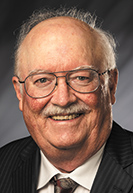
A bill introduced by Rep. Michael Aylesworth, R-Hebron, would restructure the composition of the judicial nominating commissions in Lake and St. Joseph counties. Currently, an even number of attorneys and nonattorneys are appointed by local stakeholders. House Bill 1453 would give the governor a say in JNC members and remove the requirement for attorney involvement entirely.
Aylesworth presented HB 1453 as a simple reset of a system that’s been in place for decades. He read a letter from an anonymous attorney in Lake County, who spoke of political bias that kept certain candidates from submitting their names for judicial consideration.
But among those attorneys willing to speak publicly about the bill, the response has been colder.
“This allows whoever is governor at the time to have a majority say over who is going to be a judge in Lake County,” said Angela Jones, president of the Lake County Bar Association. “That is akin to direct governor’s appointments, and it takes the decision away from the local counties. That is not acceptable.”
Statehouse debate
HB 1453 would reduce the number of JNC members in each county to five — three appointed by the governor and two appointed by county commissioners. When a superior court vacancy occurs, the JNCs would be tasked with submitting the names of the five most qualified candidates to the governor, as opposed to the three names the Lake County commission is currently required to submit.
“Restructuring the composition of each commission serves as a healthy reset for the judicial selection process so that personal biases and preferences do not hinder selection,” Aylesworth told lawmakers before a final House vote Feb. 8. The legislation passed the House on a party-line 63-31 vote.
Speaking with Indiana Lawyer, Aylesworth said he’s heard from Lake County lawyers that the results of the judicial selection process were a foregone conclusion before the process started. Rep. Jake Teshka, R-South Bend, and Rep. Hal Slager, R-Schererville, later joined the legislation, and Teshka said the bill was driven by local constituents and attorneys who feared “reprisal” for supporting the legislation. Aylesworth supported that proposition, telling Indiana Lawyer that he was asked to reveal the names of attorneys who wrote letters in favor of his legislation, but he refused.
Aylesworth, a retired businessman whose wife, Dolores, is a licensed attorney in Hebron, told House members that attorneys on the JNCs could be inclined to nominate candidates they would most like to practice before, rather than the most qualified candidates. Elaborating on that point, he told IL that judges are human and are affected by their backgrounds and experiences.
“It’s just very challenging to have an absolutely, 100% clean background with a case that comes before you as to every attorney,” he said. “It’s impossible.”
The overarching goal of HB 1453, Aylesworth said, is to help ensure more robust slates of candidates are sent to the governor free of political consideration. Democrat lawmakers, however, accused him of having openly partisan motivations.
Reps. Ragen Hatcher and Vernon Smith, both of Gary, both noted on the House floor that the four counties where merit selection is used – Lake, St. Joseph, Allen and Marion – have the largest populations of Democrats in the state. They, along with Democratic Rep. Ryan Dvorak of South Bend, accused Aylesworth of trying to rig the system in favor of more Republican judges.
“Is it just a coincidence that those four counties are counties that are under Democratic control?” Smith asked lawmakers before the Feb. 8 vote. “… I’m not making a judgment, but it seems a little strange to me.”
Aylesworth, however, said part of his motivation was to ensure younger attorneys who are not as politically connected feel that they have a fair opportunity to be considered for judgeships.
 Politics and diversity
Politics and diversity
Indiana Lawyer reached out to the members of the JNCs in Lake and St. Joseph counties, as well as the members of the Superior Court benches in those counties. Among those who responded, all spoke against HB 1453.
Jones, president of the Lake County Bar Association, testified against the bill in committee on behalf of the Lake County bar, the James C. Kimbrough Bar for African American lawyers and the Rudy Lozano Bar for Latino lawyers. The St. Joseph County Bar Association passed a resolution opposing the bill, suggesting that the issue be sent to a summer study committee.
Likewise, the Lake and St. Joseph Superior Court judges submitted letters to lawmakers asking that the statutes governing judicial selection in their counties not be amended in the manner provided in HB 1453.
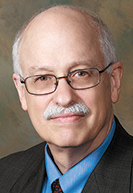
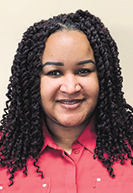
Overwhelmingly, the attorney members of the commissions said they had not heard any complaints about the candidates they’ve sent to the governor. Only Brandy Darling, a deputy prosecutor in Lake County, said she had heard “rumblings” after new attorney members were elected to the commissions in 2019, but she dismissed those complaints as “sour grapes.” Current law provides that legal professionals in Lake and St. Joseph counties elect the attorney members to their JNCs.
The overarching concern among the attorney members is that HB 1453 does not require the governor or the county commissioners to appoint practicing lawyers to the commission. Chuck Leone, an attorney member of the St. Joseph County commission, said attorney input is essential.
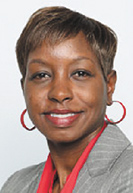
“I think lawyers are uniquely positioned not only to observe but to collect other observations,” Leone, of Halpin Slagh in South Bend, said. “Each of the applicants did sign a consent form that allowed us to speak with judges and other attorneys about them, and we did so to collect as much information as we could. It’s a very robust process.”
Further, the lawyers said, they practice in their local courts every day, so they know best what qualities are needed in judges.
The other concern is for diversity, both among commission members and among the candidates submitted to the governor.
Current law requires at least two members of the Lake County JNC to be minorities. In 2019, Darling said the Lake County body made history by electing two Black women — herself and Shelice Tolbert — to the commission. Both Darling and Tolbert spoke of the importance of having a commission that reflects the makeup of the community.
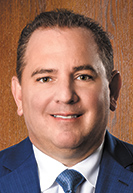
David Gladish, another attorney member on the Lake County commission, noted the candidates the commission submits to the governor are likewise diverse. In the most recent round of judicial selection, the three finalists were magistrates — one white woman, one Black man and one white man, each of whom had different practice backgrounds and years of experience. Republican Gov. Eric Holcomb ultimately named Natalie Bokota to the Superior Court bench.
When researching Bokota and other candidates, Darling, Gladish and Tolbert each said they never considered the applicants’ political affiliations. Indeed, Tolbert said she wasn’t sure of the applicants’ political views, saying she was focused on candidates’ career histories, professionalism, organization and civility.
Likewise, in St. Joseph County, Leone said he has never heard politics discussed in the judicial selection process.
Unknown future
Aylesworth originally presented the bill as having the backing of Holcomb’s office, but he later clarified that it was supporters of the governor, not the governor himself, who requested the legislation. Likewise, Holcomb’s office twice told Indiana Lawyer that the governor did not request HB 1453, nor did he know about it.
Asked whether he would support HB 1453 if passed by lawmakers, a spokeswoman for the governor said only that Holcomb was “laser focused” on his agenda, which does not include judicial selection issues. As for other bills, Holcomb is monitoring them and will review legislation that arrives on his desk, the spokeswoman said.
The bill has been criticized as giving the Indiana governor too much power over judicial slsection, with opponents noting that the chief executive would appoint the majority of JNC members, including the commission chair. Aylesworth, however, noted the local executive branch is already involved in the judiciary on logistical issues such as courthouse operations. And on the federal level, it is the president who makes judicial nominations.
“We’re trying to get it more into a format like other courts are done,” Aylesworth said, giving the example of the U.S. Supreme Court. “The executive has more say in the appointing process.”
HB 1453 has been referred to the Indiana Senate, but at IL deadline had not been assigned to a Senate committee. It’s likely that the legislation would be assigned to the Senate Judiciary Committee, which is also considering a resolution that would fundamentally change appellate judicial selection in Indiana. The Senate Judiciary Committee had not assigned a hearing date to Senate Joint Resolution 16 at IL deadline.•
Please enable JavaScript to view this content.
